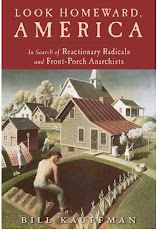From Robert Reich's blog
Last week, after being reported in the Los Angeles Times, the White House confirmed it has promised Big Pharma that any healthcare legislation will bar the government from using its huge purchasing power to negotiate lower drug prices. That's basically the same deal George W. Bush struck in getting the Medicare drug benefit, and it's proven a bonanza for the drug industry. A continuation will be an even larger bonanza, given all the Boomers who will be enrolling in Medicare over the next decade. And it will be a gold mine if the deal extends to Medicaid, which will be expanded under most versions of the healthcare bills now emerging from Congress, and to any public option that might be included. (We don't know how far the deal extends beyond Medicare because its details haven't been made public.)
Let me remind you: Any bonanza for the drug industry means higher health-care costs for the rest of us, which is one reason why critics of the emerging healthcare plans, including the Congressional Budget Office, are so worried about their failure to adequately stem future healthcare costs. To be sure, as part of its deal with the White House, Big Pharma apparently has promised to cut future drug costs by $80 billion. But neither the industry nor the White House nor any congressional committee has announced exactly where the $80 billion in savings will show up nor how this portion of the deal will be enforced. In any event, you can bet that the bonanza Big Pharma will reap far exceeds $80 billion. Otherwise, why would it have agreed?
In return, Big Pharma isn't just supporting universal health care. It's also spending a lots of money on TV and radio advertising in support. Sunday's New York Times reports that Big Pharma has budgeted $150 million for TV ads promoting universal health insurance, starting this August (that's more money than John McCain spent on TV advertising in last year's presidential campaign), after having already spent a bundle through advocacy groups like Healthy Economies Now and Families USA.
I want universal health insurance. And having had a front-row seat in 1994 when Big Pharma and the rest of the health-industry complex went to battle against it, I can tell you first hand how big and effective the onslaught can be. So I appreciate Big Pharma's support this time around, and I like it that the industry is doing the reverse of what it did last time, and airing ads to persuade the public of the rightness of the White House's effort.
But I also care about democracy, and the deal between Big Pharma and the White House frankly worries me. It's bad enough when industry lobbyists extract concessions from members of Congress, which happens all the time. But when an industry gets secret concessions out of the White House in return for a promise to lend the industry's support to a key piece of legislation, we're in big trouble. That's called extortion: An industry is using its capacity to threaten or prevent legislation as a means of altering that legislation for its own benefit. And it's doing so at the highest reaches of our government, in the office of the President.
Subscribe to:
Post Comments (Atom)


























No comments:
Post a Comment